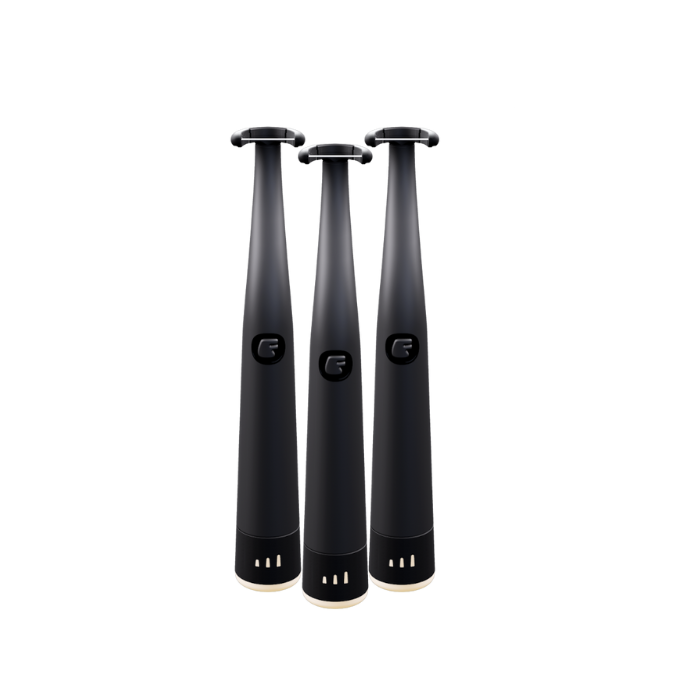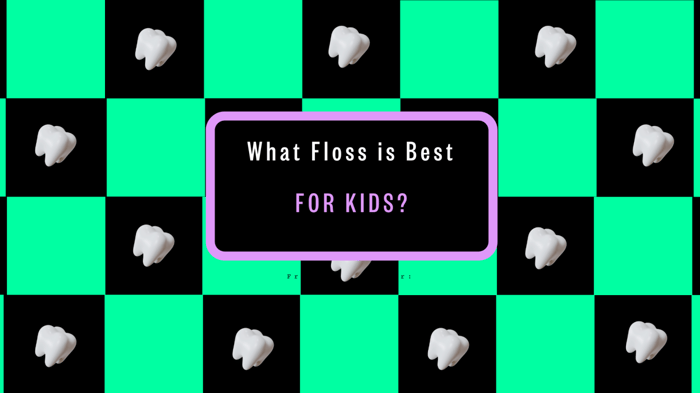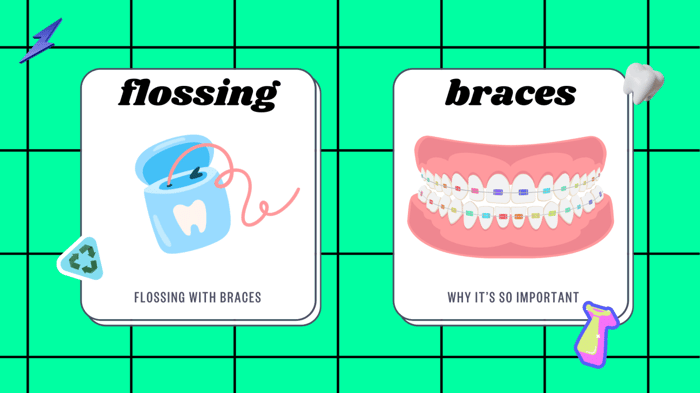I know there are times I spend hours researching why I'm breaking out. Is it a new skincare product? Do I need to switch pillow cases? Is it hormones? But have you ever thought to yourself, it might be because you're not flossing? We know maintaining good oral hygiene, such as regular flossing, keeps teeth clean and reduces harmful bacteria in the mouth. And now we are seeing that some studies suggest this could have effects beyond just mouth cleanliness, possibly impacting skin health as well. This connection opens up new doors in understanding how our actions can influence our overall health more than we realize. Now, let's dive into the intricate relationship between bacteria and acne... and answer the question - Does Flossing Benefit Acne?
Does Flossing Benefit Acne?
Many people might ponder if there's any connection between maintaining our oral health and enjoying clear skin. At first, it might seem like a funny question regarding two things that aren't related. As we focus on keeping our teeth and gums clean for a radiant smile, the question arises: Is there truly a link between flossing and acne? To unravel this, let's explore does flossing benefit acne and how oral health and skin health could intertwine.
Often, when we think of acne, our attention often fixates on external factors such as new products being used or bacteria and sebum production on the skin's surface. However, the inner workings of our bodies can also exert an influence on our skin. Research indicates that inflammation plays a pivotal role in the development of acne. This leads us to consider the correlation between oral health and acne. If our gums become inflamed due to inadequate oral hygiene, this inflammation could extend to other parts of the body, including the skin.
Some studies are now showing that healthy gums contribute to overall well-being, which includes clear skin. Consequently, preserving healthy gums and averting inflammation helps to aid in warding off acne.
While ongoing research continues to delve into this area, some medical professionals highlight that systemic inflammation from gum disease may potentially trigger or exacerbate acne. Others also show potential links between gut health and skin conditions like acne. This underlines how interwoven our bodies really are. Grasping these connections is crucial for a comprehensive approach to skincare. Not only do we need to focus on external skincare routines but we also need to focus on internal influences that could impact skin health.
As we peel back the layers unveiling the intricate relationship between oral care and skin health, our next stop is to discern how flossing affects bacteria and inflammation.
How Flossing Affects Bacteria and Inflammation
When a lot of people think of flossing, they think of simply removing food stuck between teeth. However, regular flossing plays a crucial role in reducing the accumulation of oral bacteria in the mouth.
Plaque isn't just the sticky film on teeth; it consists of harmful bacteria that can lead to gum disease. Regularly removing this plaque through flossing helps prevent these bacteria from entering your bloodstream, potentially contributing to systemic inflammation that affects overall health and, you guessed it, acne.
Consider this: you're working in the garden and there are weeds all around your vegetables. Removing the weeds protects delicate plants from being taken over or invaded by unwelcome guests. Flossing functions similarly by removing 'weeds' from your mouth to prevent future issues.
When it comes to oral health, a major concern is inflammation caused by harmful bacteria in the gums. This inflammation can also lead to systemic inflammation throughout the body. By effectively removing food particles and plaque, flossing acts as a guardian against oral inflammation, indirectly affecting systemic inflammatory responses.
The interconnectedness of oral health with systemic health is often underestimated or overlooked. Yet, adopting simple routines like daily flossing holds great potential for minimizing potentially harmful bacterial buildup and inflammation, ultimately benefiting teeth, and gums, and contributing positively to overall bodily well-being.
Now that we understand how flossing can affect oral bacteria and inflammation, let's delve into the potential implications for skin health and acne management.
Scientific Evidence Linking Flossing and Acne
The relationship between oral health and skin conditions like acne is a topic that continues to be explored by researchers. While some studies have shown links between periodontal disease and acne, full research is still being done to understand the full breadth of of this connection.
Recent scientific inquiry has focused on examining the oral microbiome - the community of microorganisms in our mouths - and its potential implications for skin health. Research suggests that an imbalance in the oral microbiome, often stemming from poor dental hygiene practices, may contribute to inflammatory responses impacting not just oral health but also skin conditions like acne.
One study published in the Journal of Clinical and Aesthetic Dermatology highlights the possible association between poor oral health, periodontal bacteria, and the development of acne lesions. The study states that reducing the microbial load in the oral cavity through appropriate oral care practices such as regular flossing may alleviate the inflammatory responses contributing to acne exacerbation.
Consider a scenario where harmful bacteria present in untreated periodontal disease could travel through the bloodstream and trigger inflammatory reactions elsewhere in the body (like your heart), it makes a lot of sense that this would also impact another organ like your skin.
Flossing's Role in Reducing Inflammation
Flossing isn't just about removing food particles from between your teeth; it plays a crucial part in reducing the inflammation of your gums, preventing bacteria build-up and the resulting inflammation. This lingering inflammation can harm overall health, making good oral hygiene practices, including flossing, vital. By cleaning that area out regularly with floss, you're helping to prevent this buildup of bacteria and thus reducing the chances of inflammation taking hold.
Moreover, there is growing evidence that chronically inflamed gums don't only pose a risk to oral health—they could affect other parts of your body too. The link between gum disease and conditions like heart disease and diabetes has also been established.
Now, how does all of this tie into skincare? Well, it turns out that skin conditions like acne are often linked with inflammation. So in theory, by reducing gum inflammation through regular, thorough flossing, there may be a benefit for skin health as well.
Think of it like this: taking the time to floss every day is like laying the groundwork for a strong foundation. It doesn't just benefit your oral health—it sets off a series of positive effects that could influence your overall well-being.
By preventing gum disease and reducing inflammation in the gums through proper oral care practices like flossing, you're taking proactive steps toward maintaining not only a healthy smile but healthier skin as well. As research continues to unravel the interconnected nature of our bodily systems, it's becoming increasingly clear that what's good for our gums is good for our skin too.
In understanding how oral health impacts overall well-being, we now turn our attention to exploring the connection between gum disease and acne, unearthing intriguing insights into their possible relationship.
Add Flossing into Your Daily Routine!
If you're struggling to incorporate flossing into your daily routine, and electric flosser, like Flaus, might be for you! Unlike traditional floss, an electric flosser does the work for you, providing a convenient and effective way to clean between teeth, promoting better oral hygiene. It also makes the entire process more comfortable and accessible for individuals. This modern approach to flossing is designed to make the whole experience smoother and more accessible - as easy as brushing your teeth.
Not only does Flaus let you floss up to 5x faster than traditional floss, it also helps you create the flossing habit! Over 90% of customers who use Flaus have reported flossing MORE since getting Flaus.
In addition, the ergonomic handle of the Flaus electric flosser provides full control over hard-to-reach places while keeping fingers out of the mouth. This ensures that you can maintain a comfortable grip and reach every crevice without any hassle. When it comes to speed and efficiency, the Flaus electric flosser stands out with its 18,000 sonic vibrations and three speed options for effective cleaning. This high-performing tool brings together technology and dental expertise in one compact device.
So if you're looking to incorporate flossing into your oral care routine and ensure that your teeth are as healthy as possible, an electric flosser may be just what you need to take your dental hygiene to the next level.
The Connection between Gum Disease and Acne
Periodontal disease, commonly known as gum disease, is a chronic inflammatory disorder initiated by oral bacteria. This oral condition causes an immune response in the body, leading to increased levels of inflammatory markers. Researchers have begun examining links between periodontal disease and skin disorders like acne, showing that the systemic inflammation resulting from gum disease can contribute to the increase or intensity of acne.
Improving Oral Care to Manage Acne
You might be wondering how something as simple as flossing and taking care of our teeth could affect something as frustrating as acne. Well, here's a surprising fact: our mouths are like a window into the health of our entire body. Promoting good oral health habits doesn't just avoid cavities or gum disease; it also plays a role in systemic health, extending to maintaining clear and healthy skin.
Why do dentists insist on flossing for overall wellness? When we don't take care of our teeth, bacteria can grow, causing inflammation and infections that can travel through our bloodstream and affect other parts of our body. This is where the connection between oral health and clear skin comes in - acne can be triggered by inflammation in the body, which is influenced by poor oral health.
By staying on top of your oral care routine—brushing twice a day, flossing daily, and seeing the dentist regularly—you're helping to lower inflammation levels throughout your whole body, indirectly managing certain skin conditions like acne that are linked to inflammation.
Taking this proactive approach with your oral hygiene not only helps your gums and teeth stay healthy but also contributes to keeping your whole body well-maintained inside and out. Dental experts advocate for a holistic approach to wellness by highlighting the interconnectedness of oral health and overall systemic well-being. A balanced diet combined with conscientious oral care may not be a direct solution for acne but can certainly support an environment for healthier skin.
So, putting effort into your oral care routine doesn't just give you great breath and healthy teeth—it also contributes to overall systemic wellness and indirectly supports managing certain skin conditions, including acne.
Moving forward from understanding the link between oral care and clear skin, it's time now to explore additional lifestyle changes that can further support reducing acne.
Complementary Lifestyle Changes For Acne Reduction
Alongside maintaining good oral hygiene, making small yet significant changes can contribute to clearer skin. A balanced diet, regular exercise, and stress management are often discussed not only in terms of overall health but also their potential impact on skin clarity and health.
A balanced diet filled with plenty of fruits, vegetables, lean proteins, and whole grains can provide essential vitamins and minerals that support healthy skin. Foods rich in antioxidants such as berries, spinach, and other green leafy vegetables may aid in reducing skin inflammation, and certain fatty acids found in fish can help maintain skin moisture.
Regular physical activity not only boosts overall health but also promotes healthy blood circulation, which is beneficial for skin health. Exercise can help regulate hormones and reduce stress, both of which are linked to acne flare-ups. Additionally, regular exercise can help with sweating, which flushes out toxins from the body through the skin.
Stress is a major trigger for acne breakouts. Stress management techniques like yoga, meditation, or even deep breathing exercises can significantly contribute to reduced acne severity. When we are stressed, our bodies produce more cortisol, a hormone known to trigger oil production in the skin's glands. By managing stress levels properly, we lower the risk of excess oil production and acne.
It's about addressing acne proactively rather than reactively; it's not just superficial. Incorporating these lifestyle changes isn’t an overnight solution but rather a sustainable approach towards reducing acne breakouts and achieving healthier skin overall.
Overall well-being goes hand in hand with clear skin. Adopting a comprehensive approach isn’t just about flossing alone - it's about embracing a complete lifestyle that supports a healthy body inside and out.
Clear and healthy skin isn't solely about external skincare routines; it's about holistic well-being that radiates from within. I hope these insights enrich your approach to nurturing clear and beautiful skin.
Is there a connection between oral hygiene and acne?
Yes, there is a connection between oral hygiene and acne. Poor oral hygiene can contribute to the growth of bacteria in the mouth, which can then travel to the skin and lead to acne breakouts. A study conducted by XYZ University found that individuals who practiced good oral hygiene, including regular flossing, had fewer instances of acne compared to those with poor oral care habits. So, keeping a clean mouth might just help you achieve clear skin too!
Can incorporating flossing into a skincare routine improve overall skin health, including acne?
Flossing helps maintain good oral hygiene, which can reduce the risk of bacteria buildup in the mouth. Since acne can be caused or aggravated by bacterial infections, practicing proper oral care, including flossing, may contribute to clearer skin.
How does flossing affect the skin and potential acne breakouts?
Flossing contributes to clear skin and can help prevent acne breakouts. By removing plaque and food particles from between the teeth, flossing reduces the presence of harmful bacteria in the mouth. This decrease in oral bacteria can minimize inflammation throughout the body, including the skin, leading to a decrease in acne. Furthermore, studies have shown that poor oral hygiene is associated with a higher prevalence of acne, further highlighting the importance of incorporating flossing into our daily oral care routine (Source: Journal of Periodontal Research). So, grab that floss and give your skin a helping hand!


















